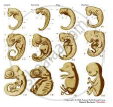Advertisements
Advertisements
Question
Where is carbon dating used?
Solution
Carbon dating is used in studying the paleontological evidences of evolution.
APPEARS IN
RELATED QUESTIONS
State the connecting links between Peripatus with Annelida and Arthopoda.
(a) Select the analogous structures from the combination given below:
(i) Forelimbs of whales and bats
(ii) Eyes of octopus and mammals
(iii) Tuber of sweet potato and potato
(iv) Tuber of Bougainvillea and tendrils of Cucurbita
(b) State the kind of evolution they represent
Explain with an example for the given, how the following provides evidence in favor of evolution in organisms :
Homologous organs
Given below is the list of vegetables available in the market. Select from these the two vegetables having homologous structures:
Potato, sweet potato, ginger, radish, tomato, carrot, okra (Lady’s finger)
(A) Potato and sweet potato
(B) Radish and carrot
(C) Okra and sweet potato
(D) Potato and tomato
Study the following statements:-
I. Wings of birds and wings of bats are homologous organs.
II. Wings of birds and wings of insects are modified forelimbs.
III. Wings of birds and wings of insects are analogous organs.
IV. Wings of birds and forelimbs of horse are homologous organs.
The correct statements are
(A) I and II
(B) II and III
(C) III and IV
(D) I and IV
“Two areas of study namely 'evolution' and 'classification' are interlinked'. Justify this statement.
If you are asked to select a group of two vegetables, out of the following, having homologous structures which one would you select?
(a) Carrot and radish
(b) Potato and sweet potato
(c) Potato and tomato
(d) Lady finger and potato
Differentiate between analogy and homology giving one example each of plant and animal respectively.
An example of homologous organs is
Human tailbone is a vestigial organ. Explain.
The forelimbs of a frog, a bird and a man show the same basic design (or basic structure) of bones. What name is given to such organs?
The presence of which of the following types of organs in two animals indicates that they are not derived from a common ancestor?
(a) homologous organs
(b) excretory organs
(c) analogous organs
(d) reproductive organs
Read the following statement and justify same in your own words with the help of suitable example.
There is evidences of fatal science among chordates.
Write short notes based upon the information known to you.
Embryology
Observe the picture and answer the following questions.
A) Which evidence of evolution is shown in the picture?
B) What can be proven with this proof?
C) Give one more example of evidence of evolution
_______ is a connecting link between Annelida and Arthropoda.
Choose the correct option of the following question:
Wings of Insect and Birds are examples of :
Explain any three molecular (genetic) evidences in favour of organic evolution.
Find an odd one out.
Find an odd one out.
I am a connecting link between reptiles and mammals. Who am I?
Match the following.
| Column A | Column B |
| 1) Morphological evidences | a) Tail-bone or wisdom teeth |
| 2) Paleontological evidences | b) Leaf venation |
| c) Fossils |
Give scientific reason.
Peripatus is said to be the connecting link between Annelida and Arthropoda.
Write a short note:
Embryological evidences
Observe the following images and answer the questions.

- Which evolutionary evidences are indicated in the given picture?
- How are they formed?
- Which method is used to measure their age or their time?
A human hand, a front leg of a cat, a front flipper of a whale and a bat’s wing look dissimilar and adapted for different functions. What is the name given to these organs?
How do you differentiate homologous organs from analogous organs?
Select vestigial organs from the following.
Homologous organs are:
Tendons and ligaments are examples of ______.
Organs having similar functions but different origin and development are known as:
Did aquatic life forms get fossilised? If, yes where do we come across such fossils?
How do we compute the age of a living tree?
How do we compute the age of a rock?
Explain natural selection with the example of industrial melanism.
Give examples of homologous organs and analogous organs in plants.
Give a definition of Palaeontology.
Write names of some vestigial organs in the human body.
